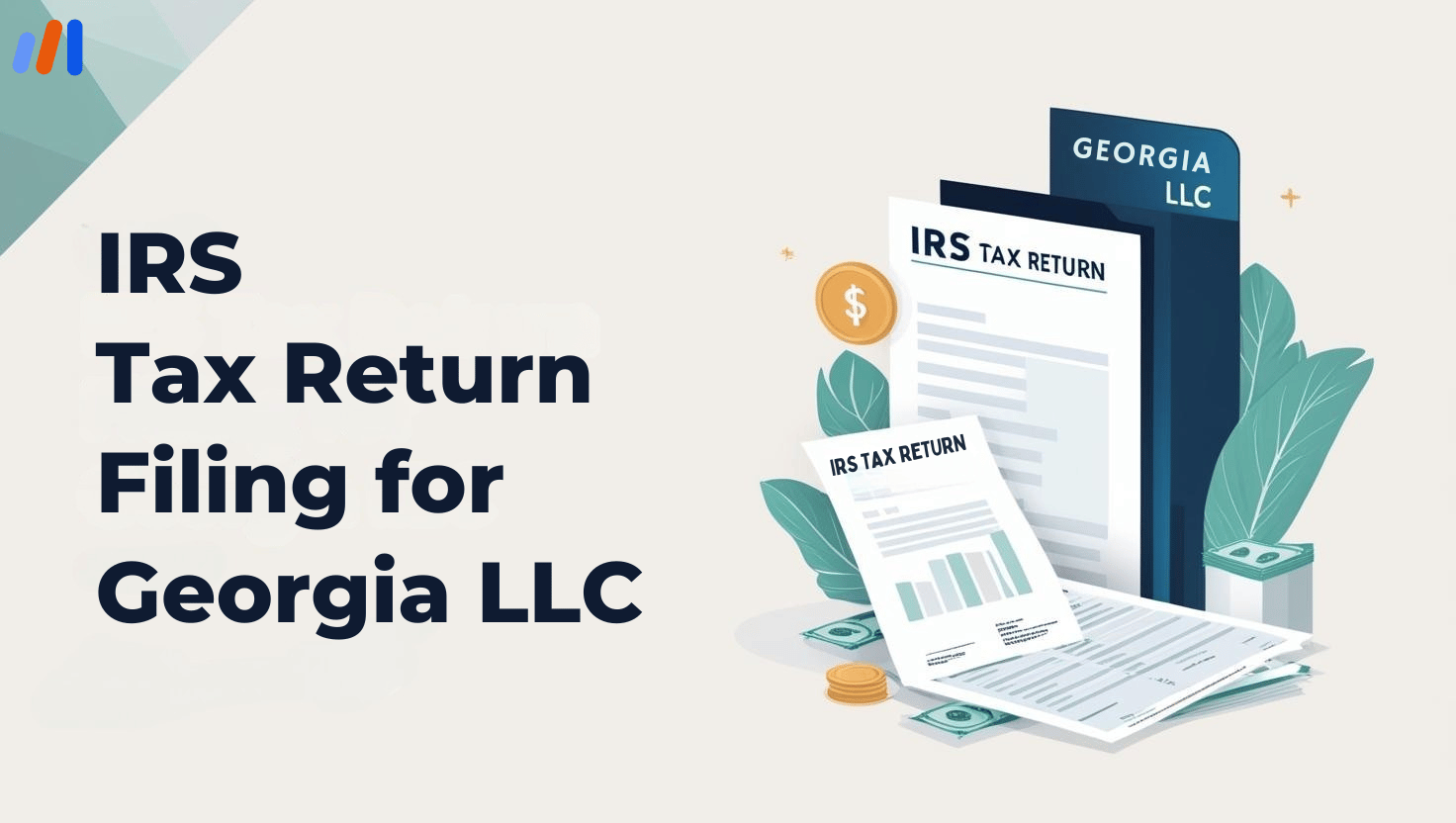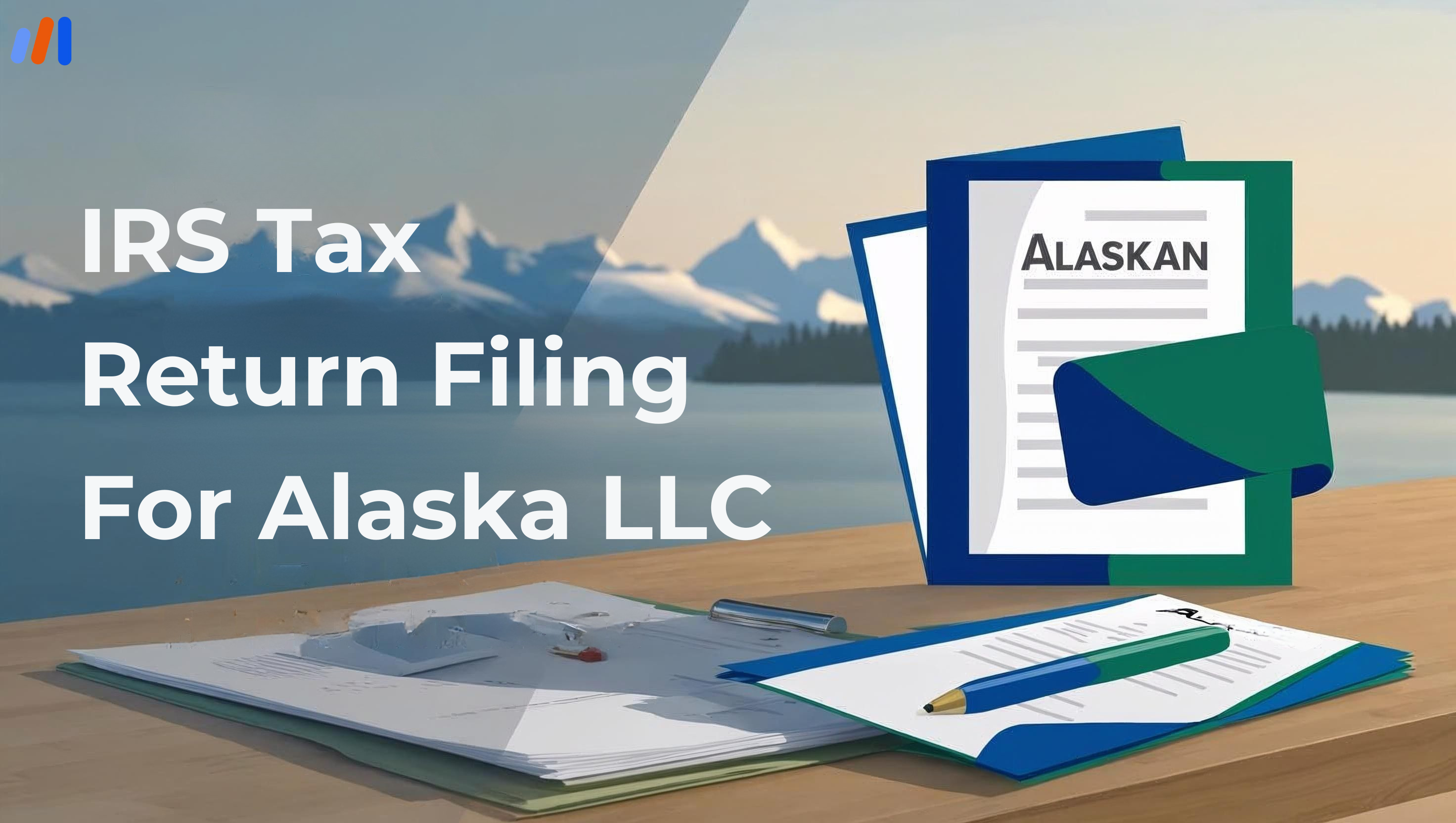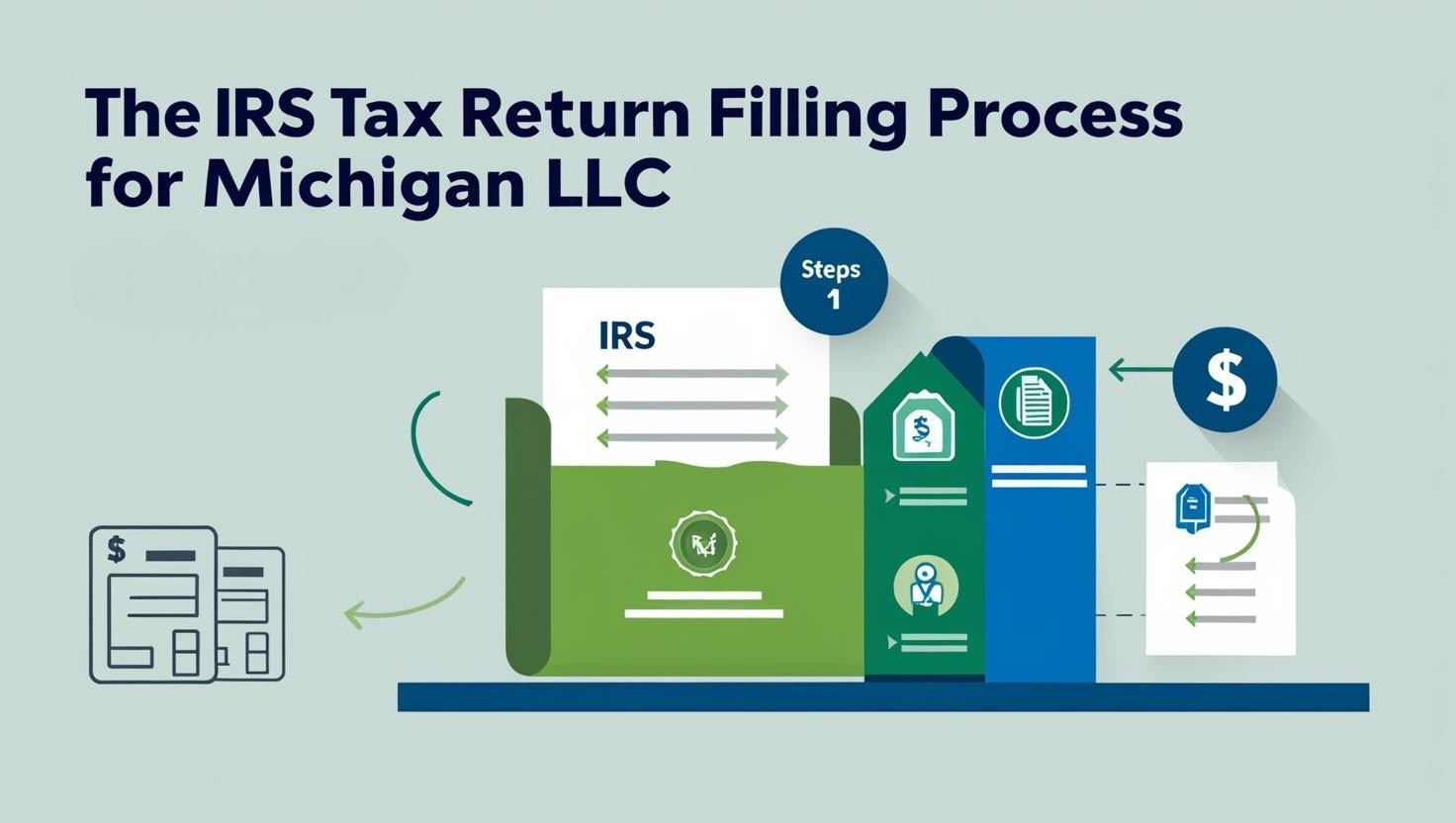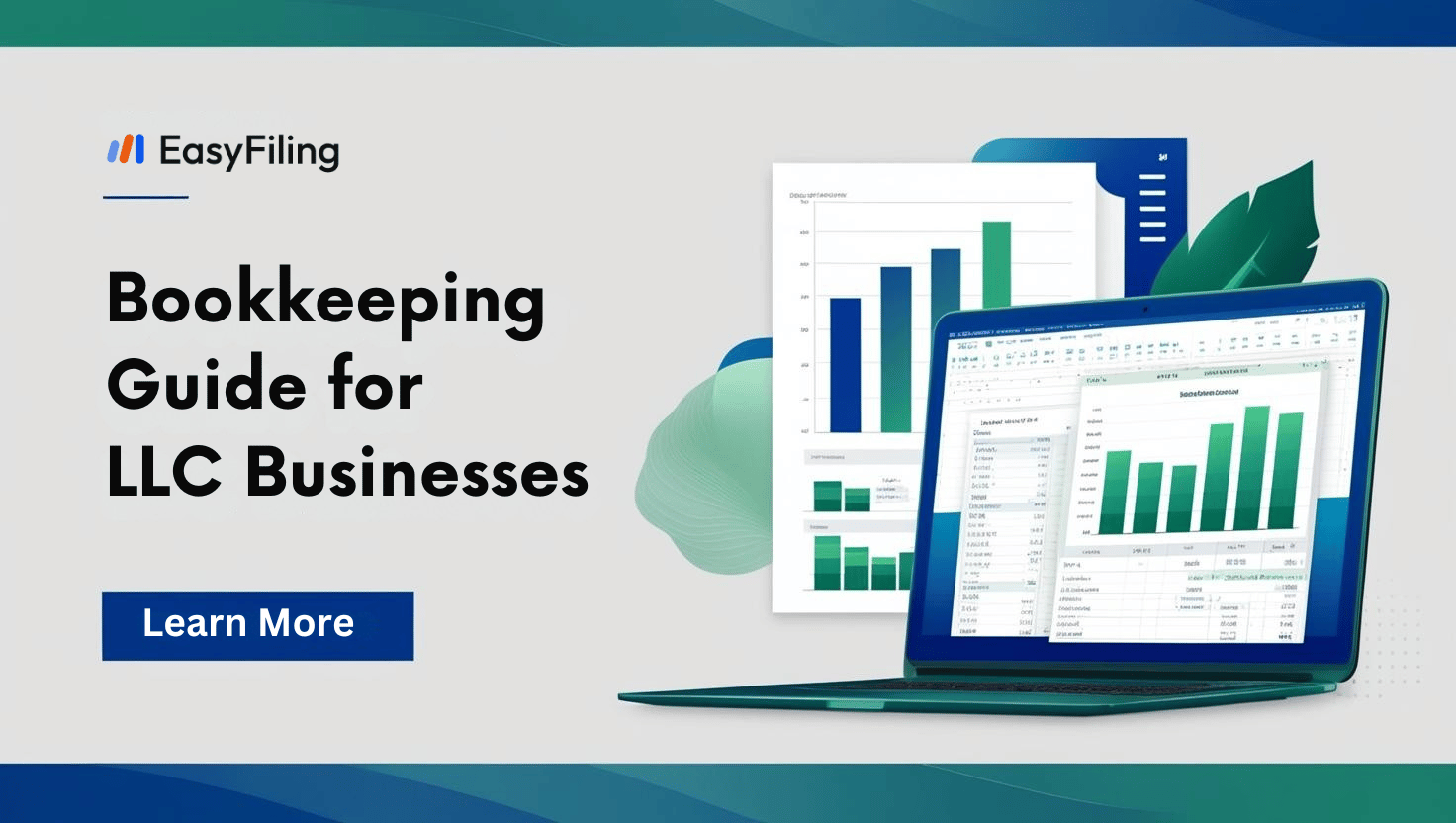As a non-resident owner of a U.S. Limited Liability Company (LLC), it is important to understand how to pay yourself out efficiently as it is beneficial in running the business while also ensuring proper compliance with the US tax policies. How you decide to pay yourself may have huge repercussions on your money matters as well as the tax matters of the business.
This guide will break down all the means of payment you understand fully, their advantages and disadvantages, and the tax implications if any, to assist you in making a satisfactory decision.
Payment Methods Available for Non-Resident LLC Owners
1. Owner’s Draw
An owner’s draw is one of the most common methods used by LLC owners including non-residents to pay themselves. In this case, the owners of the LLC transfer funds from its business bank to their private accounts. It is quite simple, and no payroll needs to be established which makes it easy to use.
Pros:
No Immediate Payroll Tax: After making a withdrawal, you will not be subjected to payroll taxes irrespective of whether any such payment has been made in the petition to withdraw the funds from the company’s treasury.
Easy and Flexible: The owner of the business can spare oneself from the formal payroll system since the steps are quite easy.
Cons:
Reportable Income: You will still have to include this amount when filing your taxes so you might be taxable for that amount later. It is quite important to keep a record of these draws as they contribute towards making tax filing accurate.
Self-Employment Tax: The draw may also be subject to self-employment tax if the LLC is a disregarded entity for tax purposes.
Tax Considerations: In most situations, the draw taken by a member of the LLC is not considered taxable when it is taken, but rather, the individual must include it in the income during the time of preparing the personal tax return. Form 1040-NR may be required within the United States.
2. Salary as an Employee
This gives the members the option of paying them a salary when the LLC is treated as a corporation or when an S Corp or C Corp tax status has been elected. In this situation, you would be regarded as a member of the LLC’s management and would withhold federal taxes including income, social security, and Medicare from your pay.
Pros:
Well-Structured Income: Since you can pay yourself a salary, this gives you a reliable source of income allowance/revenue that’s easy to plan and manage in terms of personal budgets.
Following Tax Laws: By setting up a payroll system, you increase chances of adhering to Standards in America which aids in avoiding fines.
Fair Compensation: All employees of a corporation, including the owners’ corporation, must pay themselves what is termed for the IRS in the ‘reasonable’ amount, wage to gross revenues. In this way, underreporting of income is also big on absences.
Cons:
This is difficult: Establishing the payroll system is more involved than it may seem to take a draw. You will also have required timely payroll tax returns.
Additional payroll expenditures: Most likely, your payroll bears as much tax & more, such as social security and Medicare taxes in addition to all the other ordinary advertising costs.
Other Taxation: There will be taxes withheld from your income on your wages at least at the federal level so state level also potentially. On top of this, you may have to pay weekly state social security and Medicare tax which will increase your total taxes.
3. Payments Made to Independent Contractors
Another option is to pay yourself as an independent contractor, issuing yourself a Form 1099-MISC rather than a W-2. This is often the case with owners who wish to retain control over the timing and mode of their remuneration.
Pros:
Avoid Employee Payroll Tax: This means that you will not have to deal with their payroll tax obligations at the moment of payment which offers better cash management and flexibility.
Mastertime: As a self-employed, more independent lending payment is optional. You can choose how much to lend to yourself and when making such planning broader.
Cons:
Self-Employment Taxes: Having the status of an independent contractor means that while filing your tax return, you are responsible for remitting self-employment tax and self-majorly those of social security and Medicare.
Documentation Required: More so, proper documentation of all remittances has to be available to prove this system in case of an audit by the Internal Revenue Service.
Tax Implications: Therefore when you are paid sums of the amount when an independent contractor, such payments attract self-employment taxes which constitute a huge cost. Income tax payments will also be necessary to consider based on the amount of earnings that you will have generated.
4. Distributions or Dividends
For non-resident LLC owners whose LLC is taxed as a corporation (C Corp or S Corp), taking distributions or dividends is another way to withdraw profits from the company. This income can be subjective because it will not appear on earnings for tax purposes as it is deducted from net earnings after payment of expectancy rather than before.
Pros:
No Payroll Taxes: since dividends or distributions cannot be classified as wages offering such income to save on payroll taxing also including social security & Medicare ‘as immediate savings’,
Flexible Profit Sharing: Getting cash as distribution makes it easier for the owners to enjoy business profits without being placed on a regular salary basis.
Application Outsourcing: Income Tax: There is no payroll tax, but dividends and distributions are taxed as income. The tax treatment is determined by the LLC’s tax classification and their home country’s foreign income taxation policies.
Cons:
Double Taxation Risk (C Corp): If the LLC is treated as a C Corp for tax purposes, then the company may incur corporate income tax on its profits, not to mention the taxable dividends that the members may be paid which amounts to taxation twice on the same amount.
Tax Implications: If you receive distributions, you will also be liable for the income tax on the amounts received which, depending on the tax residency status, would be at the standard tax rates or rates provided by the US tax treaty with your country or both.
5. Loans from the LLC
You have the option of taking a loan against the LLC if you require funds but would like to avoid creating a tax liability at that particular point in time. This one has to do with a loan and a loan agreement with terms on how the principal and interest have to be paid back.
Pros:
No Immediate Taxes: Cash is also accessible since you do not have to pay tax immediately on the loans advanced to members as this is not deemed taxable.
Financial Flexibility: Such loans act to provide you with instant cash which does not mean that your tax liability would also be increased.
Cons:
Should be Repaid with Interest: Its liabilities are due per the loan terms section in your loan agreement which is unlike an owner’s draw or distribution where the owner is free to take the owner’s draw. If the IRS suspects that the loan is merely a ‘disguised salary’, it has the power to recast the loan as income.
Documentation Needed: To avoid any risk of reclassification or penalties during tax audits, it is important to have a loan with a written agreement and the stated terms.
Tax implications: All loans are repayable with interest and no scheme of loan as Salary or distribution is permissible thus the documents and terms regarding repayment of loans must be followed. Non-compliance may result in tax consequences.
Tax Implications for Non-Resident Owners.
If you own a U.S. LLC and are a non-resident, one thing you should consider is your obligations concerning the US taxes and any tax treaties the US and your country may have to prevent double taxation. Non-resident owners may need to report their earnings by completing IRS Form 1040-NR about their income sourced from the United States. Where an election was made for the LLC to be treated for tax purposes as a corporation, this will form necessary parts of additional forms to be filed for foreign ownership and reporting purposes.
Key consideration:
Tax Treaties: There may be tax conventions in your home country that will mitigate or eliminate the possible incidence of double taxation. Tax guidance from a legal practitioner who practices professional taxation especially has an international angle would be worth it.
State Taxes: Some states in the U.S. charge taxation on income which would be an additional factor apart from the federal taxes.
Self-Employment Taxes: In case you draw a salary from the self-employed business or work as an independent contractor there is a tax on self-employment on all the income derived by you from the U.S.
Conclusion
As a foreign member of a U.S. LLC, you can pay yourself in more than one way, and it must be stressed that each method may have its advantages, disadvantages, and requirements. Some of the methods include making an owner’s draw, salaries, paying contractors, and receiving dividends. It is worth noting that these are all methods to achieve financial objectives within an acceptable tax strategy.
In this case, it is recommended to work with a professional who understands tax regulations for both the US and the foreign country in which one has residency in order not to miss out on benefits that could be gained legally within the laws of the US.
As indicated in the title above, let us now move on to how to manage your US LLC being a non-resident. A visit to EasyFiling will provide you with several resources specifically focused on foreign business owners.
File Your LLC Today
25$ off with a coupon
Lock in EasyFiling's transparent rates and get lifetime compliance support at no extra cost.
Get Started Now









